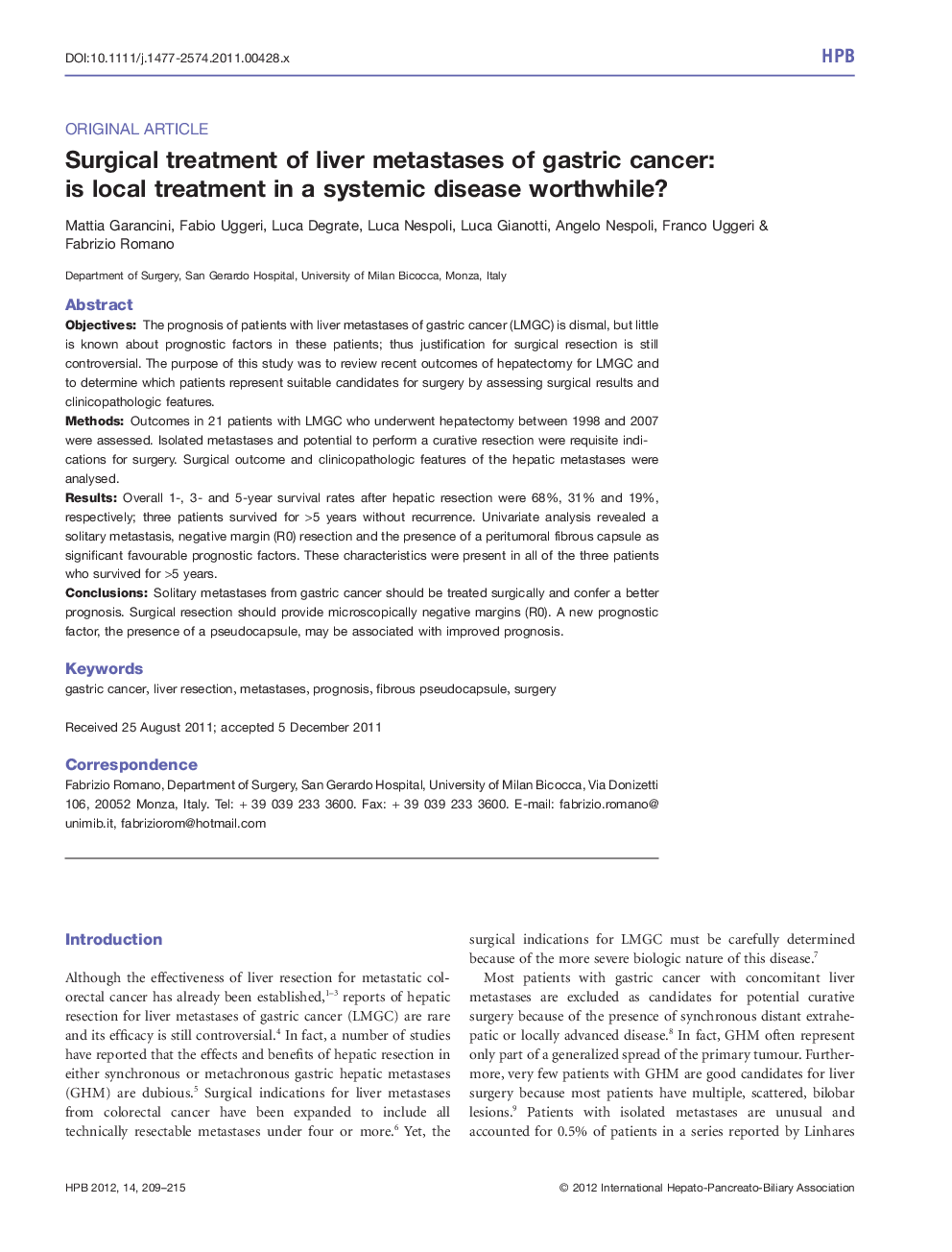| Article ID | Journal | Published Year | Pages | File Type |
|---|---|---|---|---|
| 3269686 | HPB | 2012 | 7 Pages |
ObjectivesThe prognosis of patients with liver metastases of gastric cancer (LMGC) is dismal, but little is known about prognostic factors in these patients; thus justification for surgical resection is still controversial. The purpose of this study was to review recent outcomes of hepatectomy for LMGC and to determine which patients represent suitable candidates for surgery by assessing surgical results and clinicopathologic features.MethodsOutcomes in 21 patients with LMGC who underwent hepatectomy between 1998 and 2007 were assessed. Isolated metastases and potential to perform a curative resection were requisite indi-cations for surgery. Surgical outcome and clinicopathologic features of the hepatic metastases were analysed.ResultsOverall 1-, 3- and 5-year survival rates after hepatic resection were 68%, 31% and 19%, respectively; three patients survived for >5 years without recurrence. Univariate analysis revealed a solitary metastasis, negative margin (R0) resection and the presence of a peritumoral fibrous capsule as significant favourable prognostic factors. These characteristics were present in all of the three patients who survived for >5 years.ConclusionsSolitary metastases from gastric cancer should be treated surgically and confer a better prognosis. Surgical resection should provide microscopically negative margins (R0). A new prognostic factor, the presence of a pseudocapsule, may be associated with improved prognosis.
